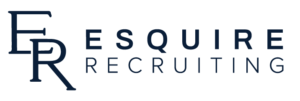Have you been working at your job for a while? Do you feel that it’s time you deserve a promotion? Here are a few tips to check if you are qualified and deserving, and also a few times to know when to expect it!
Performance:
While you may think you are deserving of a promotion solely based on the time you have spent with your company, that is not exactly true. In fact, one of the most helpful ways to increase your chance at moving up the ladder is to test your performance within the company. Here are a few ways to do so . . .
- Are you an easy employee? What we mean by this is … do you cause any problems in the workplace? If you are a coworker who gets along with every person around you, and especially your boss, then you are on the way to a promotion! If you are reading this and thinking of a few altercations you have gotten into in the workplace, rethink your relationships with the rest of the people in the office. Every boss is looking for a manager or CEO who can get along well with the rest of the firm.
 Attitude: Do you have a good attitude about all projects, and when you enter the office every morning? If you are someone who brightens the day of those around you, you are doing a fantastic job!
Attitude: Do you have a good attitude about all projects, and when you enter the office every morning? If you are someone who brightens the day of those around you, you are doing a fantastic job!- Are you efficient? One of the greatest qualities of any employee is their ability to complete tasks and take orders with efficiency. In doing so, take notes at meetings, during conversations with your boss, and around the office when given directions. Saving your boss an extra few minutes they would have had to spend on re-directing you may very well set you aside as one of the best employees.
- Be involved! Make sure you attend all office gatherings, outside parties, and especially all meetings. This also includes timeliness, preparedness, and enthusiasm.
- Be a resource! One of the best ways to achieve a promotion is by going above and beyond your work. Whether this entails reaching out to a coworker to see if they need help, a manager, or even a company boss, try to help in any way you can. This will showcase your dedication, effort, and care for the overall company performance.
- Contribute! Don’t be afraid to offer your opinions and critiques, even if it is for an employee higher up than you are. You never know which idea may lead you to become the manager on a future project. Always trust in your intelligence and abilities – remember, the company hired you because they had faith in your talent!
When to Expect:
- Understand Company Policy: Some companies have certain minimal time constraints they must follow before offering any type of promotion. Be familiar with those policies and how long you have worked for the company. Also be aware of when those times are coming up!
- Be Aware: Although you may be deserving of a promotion, be aware of your coworkers. Are you truly the best candidate to move up the ladder? Have you accomplished equivalent work? More? Less? Understanding how you perform in comparison to those around you will help you understand if you are qualified to move up.
- Speak to Your Boss: Don’t be afraid to talk with your boss about the idea of a promotion! Make sure you wait the appropriate amount of time, and they will be happy to discuss this with you (as well as an outline for your future within the firm).
- Always feel free to ask your boss how you can help around the office, how you are performing, and which areas you could improve on! Not only will this show your boss you are dedicated to becoming the best employee you can be, but it will increase your chances of recognition.
- Recognize Strengths, Improve Weaknesses: Employees who are promoted excel in all areas, and do not just emphasize their strengths. Think about areas in which you may need improvement, and work to ensure you are a well-rounded, eligible contender.
We hope these tips have helped… and we hope you are all able to secure your promotions in the near future!
But if are thinking about looking for a new position … check out our article on leaving your job the proper way!
Once you are ready to do so, let us help! Search through our open jobs list!

 Qualities and Characteristics:
Qualities and Characteristics:


 Extra Tip: During the weeks leading up to your departure, make sure to thank each member of the company who has helped you in any way during your time spent there. Whether this includes mentors, coworkers, or bosses, be sure to express your gratitude in-person to each employee. There is no better way to maintain a positive relationship then by conveying your appreciation.
Extra Tip: During the weeks leading up to your departure, make sure to thank each member of the company who has helped you in any way during your time spent there. Whether this includes mentors, coworkers, or bosses, be sure to express your gratitude in-person to each employee. There is no better way to maintain a positive relationship then by conveying your appreciation.



 Interview:
Interview:




 Furthermore, most social media pages like Instagram, Twitter, or Facebook, often do not show professional appearance. For that reason, LinkedIn is the most important virtual representation of who you are for your next potential employer. Your LinkedIn profile, which showcases each of your professional experiences, must align with your resume. The jobs you include on your resume should paint a picture of who you are to your employer, and your LinkedIn profile should further extend the self-image you wish to promote. However, not all experiences shown on your LinkedIn profile will be able to fit on your resume, so make sure to pick the experiences most pertinent to the job you are applying for on that specific resume.
Furthermore, most social media pages like Instagram, Twitter, or Facebook, often do not show professional appearance. For that reason, LinkedIn is the most important virtual representation of who you are for your next potential employer. Your LinkedIn profile, which showcases each of your professional experiences, must align with your resume. The jobs you include on your resume should paint a picture of who you are to your employer, and your LinkedIn profile should further extend the self-image you wish to promote. However, not all experiences shown on your LinkedIn profile will be able to fit on your resume, so make sure to pick the experiences most pertinent to the job you are applying for on that specific resume.

 There are a ton of resources and websites available, and for free, find them! Start your search early in the year, that way you will keep up to date with all available opportunities, as well as get a head start on your competitors. If you wait, positions will fill at a rapid pace, so make sure you’re ready to go come Fall. Not only are there a plethora of online resources available to students to help them connect with internship opportunities, but many of these websites are free for access! That’s right, all you need to do is click a button and voila – a list of opportunity is at your fingertips. Curious for more?
There are a ton of resources and websites available, and for free, find them! Start your search early in the year, that way you will keep up to date with all available opportunities, as well as get a head start on your competitors. If you wait, positions will fill at a rapid pace, so make sure you’re ready to go come Fall. Not only are there a plethora of online resources available to students to help them connect with internship opportunities, but many of these websites are free for access! That’s right, all you need to do is click a button and voila – a list of opportunity is at your fingertips. Curious for more?  Although this step is a little farther down the road, here are a few tips to help you rock your interview. First, jot down a list of experiences and stories that will help you answer
Although this step is a little farther down the road, here are a few tips to help you rock your interview. First, jot down a list of experiences and stories that will help you answer 


